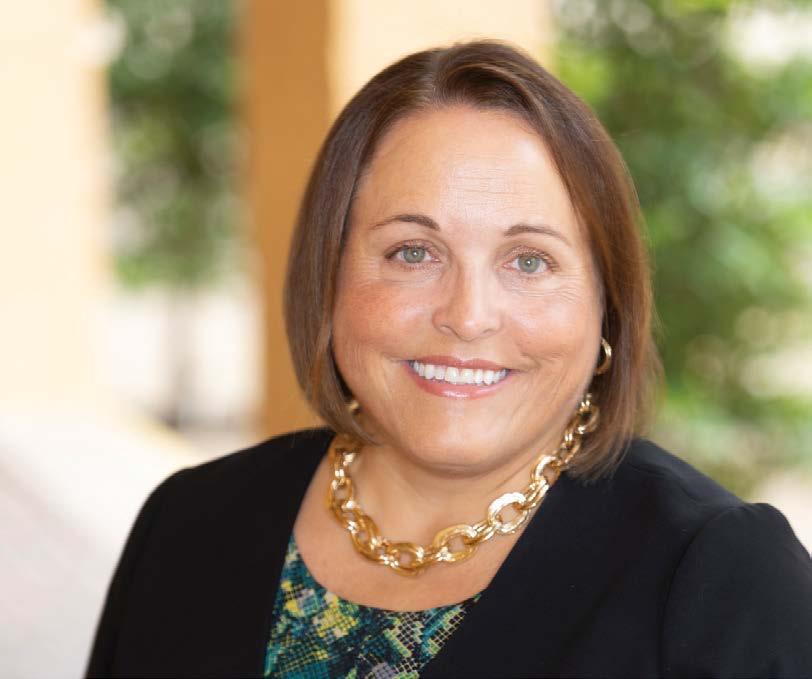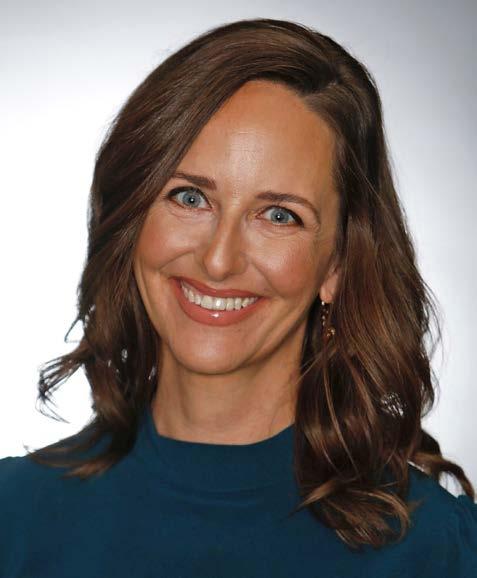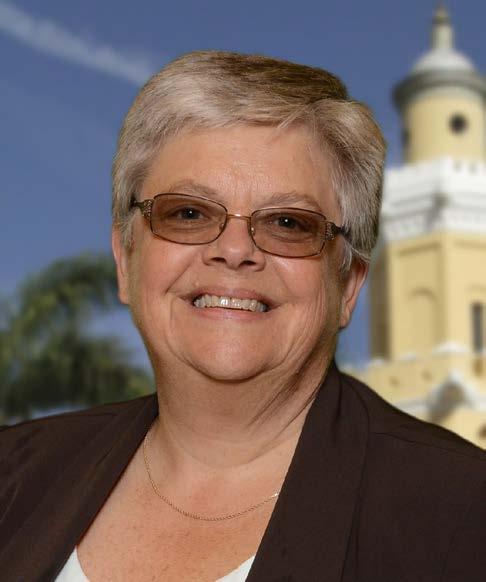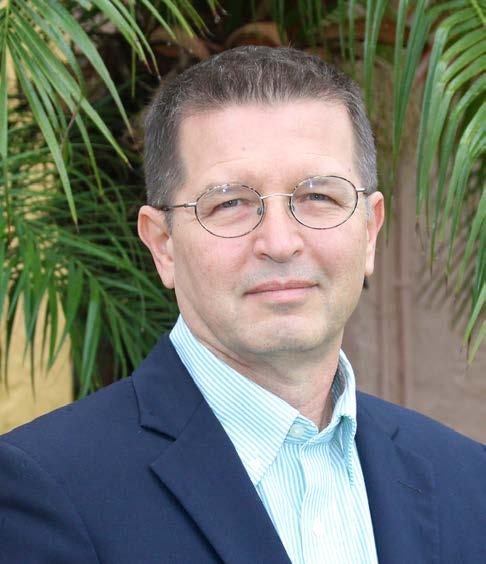The Institute for the Advancement of Legal Communication


The Institute for the Advancement of Legal Communication

The field of legal research and writing is rapidly evolving in light of advancements in generative AI technologies as well as the changing needs of our digital native students. At Stetson Law, our faculty are welcoming these new challenges and leading the way on establishing best practices.

Rethinking my entire approach to teaching research and writing felt overwhelming, reality of this project been invigorating. discovered ways to deeper engagement students, which will into better lawyering they graduate.

Visionary Kirsten Davis stays on the cutting edge of advancements in genAI technology, exploring its implications from a pedagogical standpoint as well as from an ethics standpoint. Because of her expertise in this area, she was recently appointed as the Provost’s Faculty Fellow for Generative Artificial Intelligence and Higher Education for the 2024-2025 academic year. In this role, she develops foundational policies and best practices that make genAI use safe and ethical in the Stetson educational experience and educates stakeholders on the responsible and effective use of genAI in higher education. She empowers faculty to deploy genAI effectively, ethically, and safely in their courses, fosters a culture of “cautious optimism” and creative thinking about genAI use in higher education, and develops a culture of faculty and student inquiry around genAI.
Kirsten also serves on the Legal Writing Institute’s Generative AI Committee, the Florida Bar’s Standing Committee on Technology, and a team of Stetson faculty participating in the American Association of Colleges and Universities’ Institute on AI, Pedagogy, and the Curriculum.
Whether you are genAI curious or have already developed some expertise in the area, think about joining the conversation Kirsten started in 2023 with the Legal Writing and Generative AI Convo Group. This Group now has over 400 members and presents multiple opportunities each semester to engage on topics of legal communication and generative AI within our national community. Also check out her recent article, New Parlor Is Open: Legal Writing Faculty Must Develop Scholarship on Generative AI and Legal Writing, 7 Stetson L. Rev. Forum 1 (2024).
entire teaching writing initially but the project has invigorating. I have to create engagement for the translate lawyering when graduate.


Since summer 2024, Linda Anderson and Elizabeth Berenguer have been working with Carolina Academic Press course designers to develop online legal writing courses for Stetson’s Flex JD students. The Flex JD program is a flexible course of study for students who cannot attend law school full-time. It allows students to earn a JD in four years and permits them to take up to 44 of their 88 required hours online. To provide students with enough online course options, many of their required courses, like Research and Writing I and II, are going online.
Their work has required them to examine the fundamentals of legal research and writing, study pedagogical best practices, and think creatively about how to meet the unique needs of the Flex JD students. For Research and Writing I, students will meet for three hours once a week and complete one hour of online work asynchronously. For Research and Writing II, students will complete all of their work through an asynchronous online classroom.
By adapting to the online environment, Elizabeth and Linda have developed creative approaches to teaching legal writing, and they have been laying the groundwork for deeper thought and scholarly conversation around the fundamentals of legal writing and best pedagogical practices. They are also meeting a need within our community to provide legal education opportunities to individuals who cannot enroll in law school fulltime and otherwise would not have access to legal education.

Roy Gardner has pioneered the development of Stetson’s environmental law initiatives, and has for many years taught a Research and Writing II course concentrated in environmental law and advocacy. Under his leadership, Stetson’s International Environmental Moot Court Competition has grown exponentially. In November 2024, he traveled to Tanzania for its inaugural National Rounds, and Pakistan is already up to 24 teams in its second year.

Jaclyn Lopez has developed an upper-level writing course called Cases and Places: The Everglades, which will offer students an immersive learning experience. She and Roy will co-teach this course that will introduce students to landmark cases in a classroom setting, and
they will then travel with the students to the Everglades to camp and hike through the places they have studied and to meet the advocates and scientists fighting to preserve these ecosystems.

Roy was also recently appointed the Hugh F. Culverhouse Professor of Law, and he has been out and about, presenting at least 8 times on issues related to Sackett v. USEPA to various audiences, including a keynote address for a meeting of the Society of Wetland Scientists and a Federalist Society debate with Damien Schiff (who argued Sackett successfully before SCOTUS). Be on the look-out for his forthcoming book, Waters of the United States: POTUS, SCOTUS, WOTUS, and the Politics of a Natural Resource, which will be published by Island Press in December 2024. He is also co-editing Wetlands and International Environmental Law with Stetson’s Erin Okuno, which will be published by Edward Elgar, likely in February 2025.

Each academic year, Stetson hosts a Distinguished Legal Writing Professor of Law to teach in its 1L program. Distinguished Visitors enrich Stetson’s program by offering new perspectives and approaches to teaching, as well as fresh insights on scholarship and service. In addition to teaching, Distinguished Visitors enjoy a platform for showcasing their scholarship on campus through special lectures and events geared toward faculty, students, and alumni.
During this 2024/2025 academic year, Stetson has been honored to host Shailini George of Suffolk University Law School in Boston. Shailini is a passionate advocate for law student and lawyer well-being who has developed engaging professional identity formation courses in addition to her legal writing courses. Her scholarship engages with lawyer well-being, mindfulness, and the cognitive science of learning. She recently published The Law Student’s Guide to Doing Well and Being Well (Carolina Academic Press 2021) and has also published law review articles on distraction and the cognitive science of learning and why law students need mindfulness training. Shailini is an active leader and currently serves as the Vice President of Law Schools for the Institute for Well-Being in Law, a member of the Massachusetts Supreme Judicial Court’s Standing Committee on Lawyer Well-Being (and co-chair of its Legal Education Subcommittee), and chair-elect of the AALS Balance and Wellbeing in Law Section. In 2022, the Section awarded Shailini for her work on law student well-being.
Shailini has been an active member of the national legal writing community for twenty years, serving on the ALWD Board of Directors, the Executive Committee of the AALS Section on Legal Writing, Research and Reasoning, and chairing numerous LWI Committees. Stetson Law has been deeply enriched by her involvement on campus this academic year.


For the second year in a row, Stetson Law will host a LWI OneDay Workshop, thanks to Erin Okuno and Em Wright. The theme for 2025 is “Building the Contours of the Discipline,” and will provide participants with practical information about the process of producing scholarship as well as facilitate conversation and study of legal writing scholarship that has been published in the last 12-18 months. Their work in coordinating this one-day workshop aligns with the mission of Stetson’s Institute for the Advancement of Legal Communication to support the development of the legal writing academic discipline.

The Unending Conversation is Stetson Law Review’s online channel for all things legal writing.
The conversation continues with the recent publication of the third volume of The Unending Conversation, an online publication of the Stetson Law Review
Anne Mullins spearheads this project that provides a platform for legal writing scholarship that engages with other legal writing scholarship. The Unending Conversation supports the mission of Stetson’s Institute for the Advancement of Legal Communication by encouraging legal writing academics to read the work being published in our field and to actively engage with that work. In this edition, Justin Kishbaugh engages with the Gut Renovations piece authored by Elizabeth Berenguer, Lucy Jewel, and Teri A. McMurtry-Chubb, Melissa L. Kidder makes a case for legal pedagogy scholarship, Marcia M. Zeigler explores original research in legal academia, Kirsten K. Davis invites us to enter the parlor to discuss generative AI and legal writing, and Ann L. Schiavone begins a conversation with Jan Levine on his article, A Curmudgeon’s View of the MultiGenerational Teaching of Legal Writing
Essays and articles are accepted on a rolling basis, and you can contact Anne Mullins for more information about how you can join the conversation.

Elizabeth Berenguer directs Stetson’s Institute for the Advancement of Legal Communication, which is in the midst of developing some exciting new projects. Be on the lookout for a new podcast series entitled Exploring the Contours of the Discipline where she invites conversation with all kinds of people – experienced scholars, rising stars, hidden gems, and best kept secrets. In Spring 2025, the Institute will also foster online scholarly support for members of the legal writing academy. If you are interested in support for your scholarly writing, or if you are just curious about scholarly writing and what it would take to get started, contact Elizabeth, and stay tuned for more details on how to participate.

Linda Anderson, Elizabeth Berenguer, Kirsten Davis, Anne Mullins, and Jason Palmer were recently awarded the coveted Stetson hat in recognition of their recent book publications:
– Linda Anderson, Florida Bar Exam Essay Prep: Strategies and Study Materials
– Elizabeth Berenguer, The Legal Scholar’s Guidebook and Critical and Comparative Rhetoric: Unmasking Privilege and Power in Law and Legal Advocacy to Achieve Truth, Justice, and Equity (with Lucy Jewel and Teri A. McMurtry-Chubb)
– Kirsten Davis, Classical Rhetoric and Contemporary Law
– Anne Mullins, Florida Legal Research (5th ed.) (with Barbara J. Busharis and Suzanne E. Rowe)
– Jason Palmer, Reparations in Domestic and International Mass Claims Processes: Justice and Money
Elizabeth Berenguer served as co-chair of the programming committee for the Legal Writing Institute’s Biennial Conference held in Indianapolis in July 2024. In that role, she created space for a workshop series on scholarly writing, as well as ensured robust programming attuned to the needs of junior, mid, and senior academics alike.
She also participated as a panelist on Critical and Comparative Rhetoric, presented on Finding a Topic and Turning it into a Thesis, and facilitated a breathing exercises workshop at the Biennial Conference. During the 2023/2024 academic year, she presented at Law & Society, the Denver Law Review Symposium: “Financial Precarity and Late-Capitalism: A Critical Perspective,” AALS, the Georgia Chapter of the American Academy of Matrimonial Lawyers Family Law Seminar, LatCrit, and the Southern Clinical Law Conference. In Fall 2023, she finalized two articles: How Traditional Legal Rhetoric’s Myth of Neutrality Sustains Capitalism and Designing Problems to Enhance Student Learning
Brooke Bowman presented Controlled Flexibility-Needed for Oral Arguments and for Life, at the Legal Writing Institute Biennial Conference held in Indianapolis in July 2024. She also presented Moot Camp at the TAC (Teaching Advocates Conference) in New York City, in early August. In addition to being a Bencher in Stetson’s new Inn system for the first-year students, she presented Preferences: Self-Assessment Tools, to one of the groups of students during the fall 2024 orientation. She was able to do this presentation because she earned her MBTI (Myers-Briggs Type Indication) certification last spring. And her recent article, The Banks Case: A Model for Persuasive Advocacy When Arguing Open Questions of Law, which she wrote with Stetson colleague, Kristen David Adams, will be published In the Stetson Law Review in early 2025.
Catherine Cameron participated as a panelist on Legal Research Ethics in the 1L Classroom, at the Legal Writing Institute Biennial Conference held in Indianapolis in July 2024. She also published It’s Time to End the Zombie Reign of Red Lion Broadcasting, 20 Ohio State Technology Law Journal 327 (2024).
Ashley Chase created TryFile, an online federal e-filing simulator that was awarded the AALL Innovations in Technology Award. She was also awarded the AALL/ LexisNexis Call for Papers Award for “Through the AI Looking Glass and What Consumers Find There,” which is forthcoming in the Journal of Technology Law and Policy. She currently serves as the co-chair of the ALWD Scholarly publications committee and is the incoming chair for the AALS Technology, Law, and Legal Education Section. She has also presented at AALS, the LWI 2024 Biennial Conference, the Legal Services Corporation Innovations in Technology Conference, the Biddle Law Library Speaker Series, and she participated in the 2024 Sirico Scholars Workshop. Her most recent publication is Aren’t We Exhausted Always Rooting for the Anti-Hero? Publishers, Prisons, and the Practicing Bar, 56 Texas Tech L. Rev. 525 (2024).
Kirsten Davis received the Dean’s Award for Outstanding Service, 2024, and she was the American Bar Association Legal Technology Resource Center’s Distinguished Women of Legal Tech Honoree for 2024. She also received the Association of American Law Schools Section on Law, Technology, and Legal Education Inaugural Technology Mentorship Award, 2024 and the Stetson University Dickerson-Brown Award for Faculty Excellence in Faculty Scholarship in 2024. She has also been presenting on genAI at an
exhausting pace. Some notable audiences include the Florida Bar Tax Section, the U.S. Court of Appeals for Veterans Claims, Lewis and Clark Law School, the Florida Bar, the Florida Division of Administrative Hearings, the Legal Writing Institute, the Stetson University Brown Center Spring Colloquium on Teaching and Learning, the Rocky Mountain Regional Legal Writing Conference, and AALS. Her recent publications include: A New Parlor Is Open: Legal Writing Faculty Must Develop Scholarship On Generative AI And Legal Writing, Classical Rhetoric and Contemporary Law: A Critical Reader (with others), and Crossing the Threshold with Apples, Potatoes, and Limes: Using the “Grocer’s Dilemma” to Introduce Law Students to Malleability in the Law
Shailini George has also been presenting around the country, including at the University of Tennessee Knoxville College of Law Symposium 2024, the Maine State Bar Association Annual Conference, the ABA New Deans Workshop, the Robert Volk Lecture Series at Boston University Law School, the AALS Balance and Well-Being in Legal Education Section, the Biennial Conference of the Legal Writing Institute, and the Institute for Well-Being in Law.
Jaclyn Lopez has been working on the following scholarly scholarly projects: Post-West Virginia v. EPA: the Administrative State’s Door is Still Ajar (forthcoming), Between a Rock and a Hardened Place: Prioritizing Climate Resiliency for Vulnerable Biodiversity; The (In)direct Effects of 20 Years of Public Citizen, and The Climate Is Changing and So Must We: The Need to Prioritize At-Risk Communities and Ecosystems. She has also presented on the ethics of movement lawyering at the International Environmental Clinicians Law Conference in Baltimore, on climate vulnerability at a receiving communities webinar, and she moderated an ABA panel on environmental justice in Seattle. As the director of the Jacobs Public Interest Law Clinic for Democracy and the Environment, she led the publication of a report on political action committees and filed two lawsuits, one regarding the climate-readiness of the Turkey Point nuclear reactor in Miami and the other to compel the Florida Department of Environmental Protection to adopt rules to protect Florida’s springs.
Anne Mullins traveled to the University of Oregon School of Law as their Galen Distinguished guest to present on emotional intelligence in judicial writing. Her visit was funded by the Galen Endowment for the Advancement of Legal Writing, which brings distinguished professors, judges, and lawyers to Oregon Law each year.